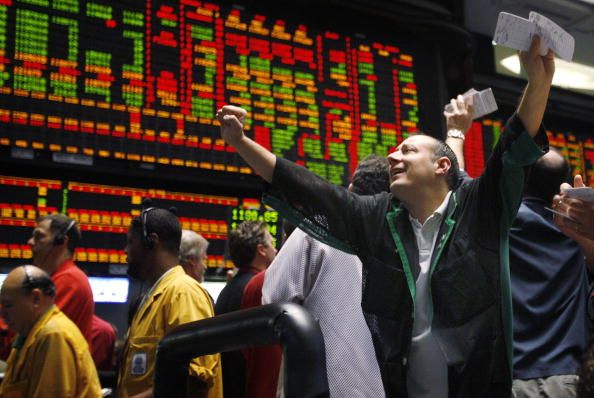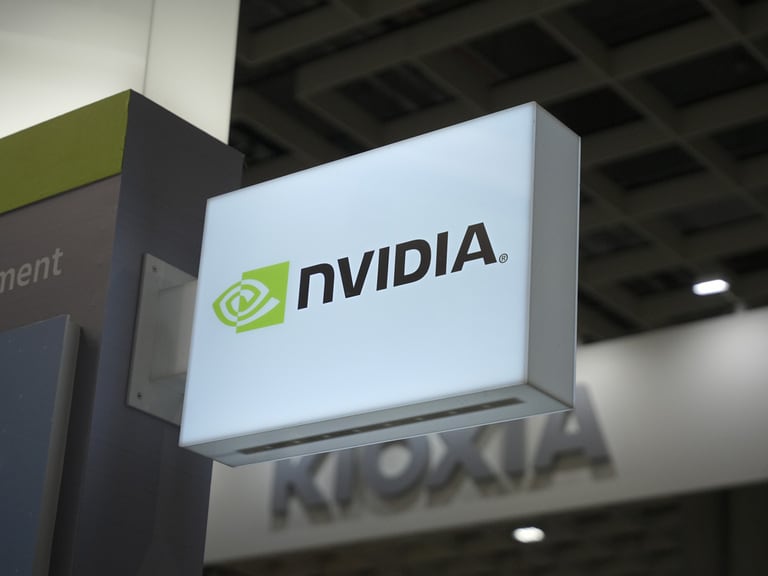It’s been a dire month, and a dire quarter for global equity markets, with the FTSE100 on the cusp of its worst quarter since 1987.
While equities have had a dire quarter oil prices have fared even worse. March has seen crude oil prices fall over 50%, their worst monthly performance ever, as demand gets crushed in the face of lockdowns across the global economy, as well as a price war between the Saudis and Russia.
The spread of the Covid-19 virus across Europe and the rest of the world in March has hollowed out economic activity, in the same way it did in China during the month of February, where the manufacturing and services sectors saw precipitous declines in economic activity.
This decline was reflected in record low PMI readings of 35.7 and 29.6 in manufacturing and services respectively. The aggressiveness of the Chinese response to the virus during February also meant that some parts of the Chinese economy were able to restart in March, and while economic activity hasn’t returned to pre-crisis levels, there is evidence of a rebound.
This is reflected in this morning’s latest March manufacturing and non-manufacturing PMI’s which saw a strong recovery to 52 and 52.3 respectively. This is well above expectations and almost too good to be a true for an economy that is still not fully functioning at its pre-crisis optimum level.
Nonetheless the improvement in PMIs has helped oil prices undergo a semblance of rebound after their big declines yesterday.
Markets in Asia have reacted in a more modest way to the apparent rebound in economic activity, with a lot of traders and investors paring back their positions in respect of month end and quarter end portfolio readjustments. There is also the reality that while China may well be getting back on its feet its key export markets are still on their knees, battling the spread of the coronavirus, and are not likely to be open for business for quite some time.
European markets have nonetheless opened higher this morning, helped by the rebound in the latest Chinese data, but also by optimism that the outbreak in Europe may be reaching its peak after the World Health Organisation (WHO) said that there appears be a stabilisation of cases in Spain and Italy, as the various lockdowns start to show signs of working.
There is also some caution ahead of the fact that tomorrow’s European and US PMI’s will be as equally dire as the February numbers were from China, which came in at record lows, so while we’re seeing some resilience today, this could be down to month and quarter end flows while tomorrow’s PMI numbers from Europe and the US could kick a leg of the recovery stool away.
In response to the sharp declines in oil and gas prices Royal Dutch Shell announced yesterday that it was walking away from an LNG natural gas project in Louisiana in an attempt to get more control over its costs. This morning the company went further in a Q1 update note by announcing impairment charges of between $400m and $800m due to the recent slide in oil prices. The company has also aid that it has secured another $12bn revolving credit facility, in addition to the $10bn revolving facility it secured at the end of last year.
Medical devices company Smiths Group, currently at the forefront of the UK response to the Covid-19 crisis in its production of ventilators the UK government, this morning announced it was delaying the separation of its medical device’s unit, until the crisis has passed. The company has ramped up production of ventilators as well as providing intellectual property advice to other companies in helping boost production. Management said their ambition is to supply an extra 30,000 ventilators over the next three months.
In its latest interim update, the company said trading activity had been affected by the crisis, due to disruption in China, while the spread of the crisis globally has prompted the company to withhold guidance due to the uncertainty around the economic outlook. Management went on to say that they would not be declaring a dividend for the first half of the year as it looked to conserve cash.
Despite the disruptions in the first half the company was still able to produce decent revenue growth of 3%, while insisting the delay in separating its medial unit allowed the business to focus on assisting the medical response to the current crisis.
Advertising and marketing group WPP became the latest in a long line of companies to suspend its final dividend and share buyback program today in response to the economic disruption caused by the spread of the Covid-19 virus. The company also withheld guidance and said it would be taking further measures to cut costs, in addition to the £3.2bn raised from recent disposals of various businesses and investments over the last few months.
Water utilities company Severn Trent has published a fairly routine trading update with no material change to its outlook since the January announcement, saying they fully expected full year trading to come in line with expectations.
According to Kantar, UK grocery stores saw their biggest month on record for grocery sales. In a separate report by Nielsen sales of frozen food soared by 84%, while the sale of beer, wine and spirits also rose sharply, as bars and restaurants were ordered to close.
Lidl saw the biggest jump, sales rising by 17.6%, while Aldi saw sales rose 11%. Sainsbury’s was the best performer of the big four, with 7.4% sales growth, followed by Tesco at 5.5%, Asda at 4.9% and Morrisons at 4.6%. Independent retailers also did well with collective sales growth of 16.1% as the whole food sector reported its best collective gains since October 2018.
The pound has given up some of its recent gains, despite seeing a slightly better than expected GfK consumer confidence number for March. We had expected to see a big decline to -15 from -7, however we came in at -9, while the latest barometer of business sentiment from Lloyds saw a fall from 23 to 6.
The final Q4 UK GDP number came in as expected at 0%, however there was some improvement to the business investment numbers from -1% to -0.5%, while exports were revised higher to 5% from 4.1% while imports rose 0.4, adjusted higher from a 0.8% decline.
US markets look set to follow up on their gains from yesterday with a higher open later today, however any gains could well be tempered ahead of a host of economic data announcements later this week. We got a taster of what to expect on the manufacturing side yesterday after Dallas Fed manufacturing activity collapsed to -70 in March.
With manufacturing and services data out later this week, as well as the latest jobless claims and payrolls report on Thursday and Friday, we could have all the makings of absolute horror show on the data front.
A sort of nightmare on Main Street scenario as investors chew over the damage caused to the US economy.






